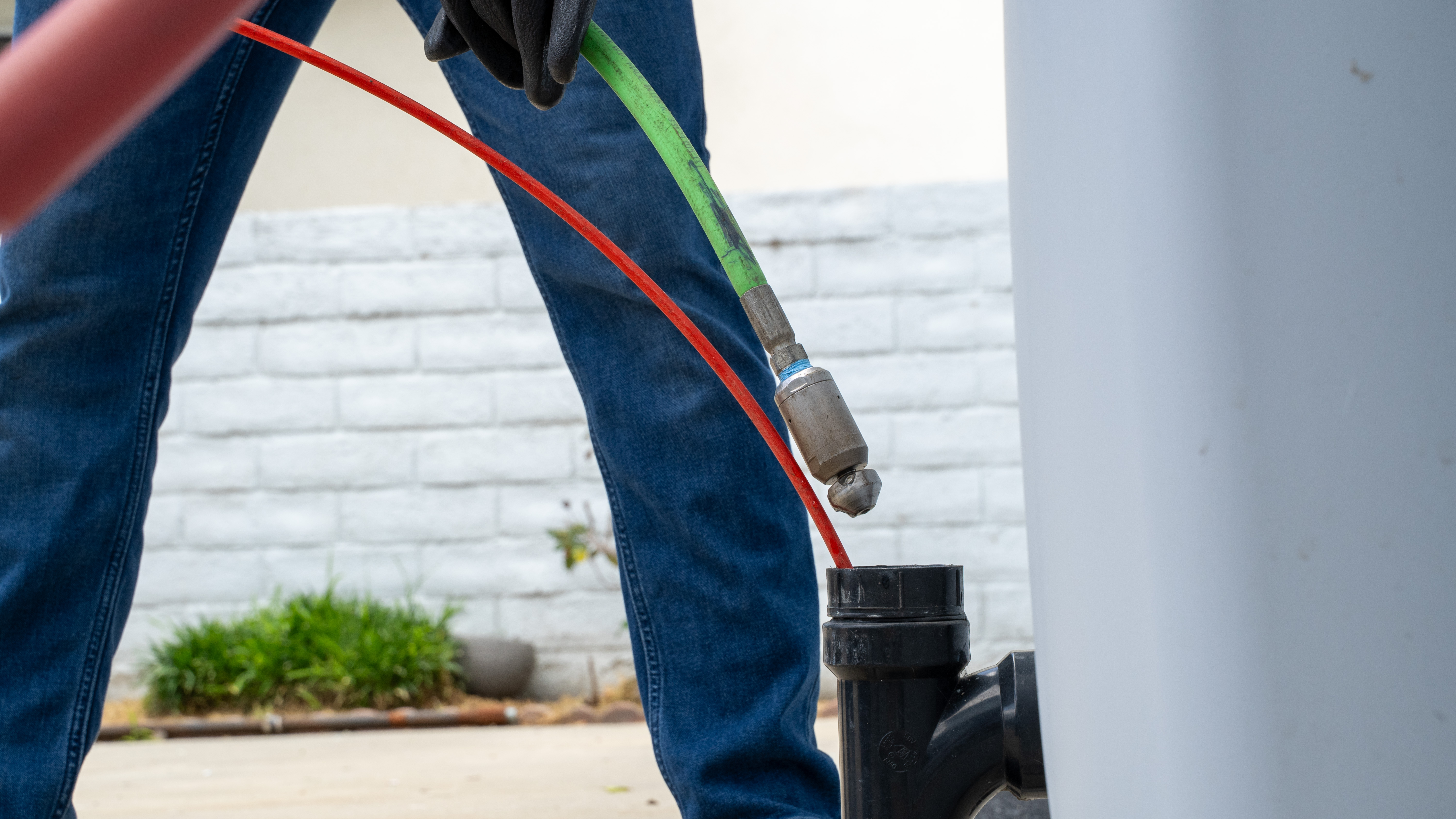Understanding the Problem: Common Causes of Clogged Drains
Accumulation of Hair and Soap Scum
One of the most common culprits behind clogged drains is the accumulation of hair and soap scum. In bathrooms, hair strands easily slip down the drain during showers, where they combine with soap residue to form a stubborn, sticky mass. This mixture adheres to the walls of pipes, gradually narrowing the passage and impeding water flow. Over time, this build-up can become significant enough to completely block the drain, leading to slow drainage or standing water. Understanding this process is crucial because it highlights the importance of regular maintenance and the need for effective unclogging methods that don't rely on harsh chemicals.
Food Particles and Grease Build-Up
In the kitchen, food particles and grease are notorious for causing clogs. As we wash dishes, small bits of food and grease from cooking oils or fats are washed down the sink. While some of these particles may pass through the pipes without issue, others stick to the pipe walls, especially when combined with grease, which solidifies as it cools. This creates a sticky trap for more debris, leading to a gradual build-up that can eventually block the drain. The problem is exacerbated by the fact that grease is particularly difficult to remove once it has solidified, making chemical-free solutions all the more appealing for tackling these types of clogs.
Tools and Materials Needed for Chemical-Free Drain Cleaning

Essential Tools: Plungers, Drain Snakes, and Wire Hangers
To tackle clogged drains without resorting to harsh chemicals, it's essential to have the right tools on hand. Plungers are a staple in any household, providing a simple yet effective means of dislodging blockages through suction and pressure. Drain snakes, or augers, are invaluable for reaching deeper clogs that a plunger can't budge. These flexible tools can navigate the twists and turns of your plumbing to break up or retrieve blockages. For those without a drain snake, a straightened wire hanger can serve as a makeshift alternative, allowing you to fish out hair and other debris from shallow clogs. Having these tools readily available ensures you're prepared to address clogs as they occur.
Natural Cleaning Agents: Baking Soda, Vinegar, and Salt
When it comes to natural cleaning agents, baking soda, vinegar, and salt are household staples that pack a powerful punch against clogs. Baking soda acts as a mild abrasive and deodorizer, while vinegar's acidity helps break down organic matter and mineral deposits. When combined, they create a fizzy reaction that can help dislodge stubborn clogs. Salt, particularly when used with hot water, can help dissolve grease and soap scum. These natural ingredients are not only effective but also environmentally friendly, making them an excellent choice for those looking to maintain their drains without resorting to harsh chemicals.
Step-by-Step Guide to Unclogging Drains Naturally
Manual Removal Techniques
Manual removal techniques are often the first line of defense against clogged drains. Using a plunger involves creating a seal over the drain and applying pressure to dislodge the blockage. For best results, ensure there is enough water in the sink or tub to cover the plunger's cup, and use quick, forceful plunges. A drain snake can be inserted into the drain to break up or retrieve clogs. Rotate the snake as you push it deeper into the pipe, and pull it out slowly to avoid pushing the clog further down. These techniques are straightforward and effective, providing a chemical-free solution to many common clogs.
Natural Drain Cleaning Solutions
For those who prefer a more hands-off approach, natural drain cleaning solutions can be highly effective. Start by pouring a pot of boiling water down the drain to loosen any grease or soap scum. Follow this with half a cup of baking soda, allowing it to sit for a few minutes. Next, pour a mixture of one cup of vinegar and one cup of hot water down the drain, and cover it with a plug to contain the fizzing reaction. After about 10 minutes, flush the drain with another pot of boiling water. This method not only clears clogs but also helps eliminate odors, leaving your drains clean and fresh.
Advanced Techniques for Stubborn Clogs
Using a Wet/Dry Vacuum
For particularly stubborn clogs, a wet/dry vacuum can be a game-changer. Begin by setting the vacuum to the liquid setting and creating a tight seal over the drain with the vacuum hose. You may need to use a plunger head or a similar attachment to ensure a good seal. Turn on the vacuum to suck out the blockage, which can be especially effective for clogs caused by solid objects. The power of a wet/dry vacuum provides a strong suction force that can dislodge even the most persistent clogs, offering a chemical-free alternative to traditional methods.
Boiling Water and Salt Flush
Another effective technique for stubborn clogs involves a boiling water and salt flush. Start by pouring a generous amount of salt down the drain, followed by a pot of boiling water. The salt acts as an abrasive, while the boiling water helps dissolve grease and soap scum. This combination can break down clogs and clear the pipes. Repeat the process if necessary, and consider using this method as part of regular maintenance to prevent future clogs. It's a simple, eco-friendly solution that utilizes everyday household items to keep your drains running smoothly.
Eco-Friendly Drain Maintenance Practices
Regular Use of Enzyme Cleaners
Incorporating enzyme cleaners into your routine is a proactive way to maintain clear drains. These cleaners use natural enzymes to break down organic matter, preventing build-up and clogs. Unlike harsh chemicals, enzyme cleaners are safe for your plumbing and the environment, making them an ideal choice for eco-conscious homeowners. Regular use can help keep your drains free-flowing and odor-free, reducing the need for more intensive cleaning methods. By choosing enzyme cleaners, you're not only protecting your plumbing but also contributing to a healthier planet.
DIY Drain Fresheners
Keeping your drains smelling fresh and free of minor build-ups can be achieved with DIY drain fresheners. A simple recipe involves mixing baking soda with a few drops of essential oil and storing it in a jar. Sprinkle a tablespoon of this mixture down the drain, followed by a cup of vinegar. The fizzing action helps clear minor clogs and leaves a pleasant scent. This natural solution is not only effective but also customizable, allowing you to choose your favorite scents. It's an easy, cost-effective way to maintain your drains and enhance your home's environment.
Wish Granted
If you're in Huntington Beach, CA, and need professional assistance with your plumbing needs, Wish Granted is here to help. Our team of experts is dedicated to providing eco-friendly solutions for all your home service needs. Contact us today to learn more about our services and how we can help keep your plumbing in top condition. Don't let clogs disrupt your daily routine—reach out to Wish Granted for reliable, chemical-free solutions.

